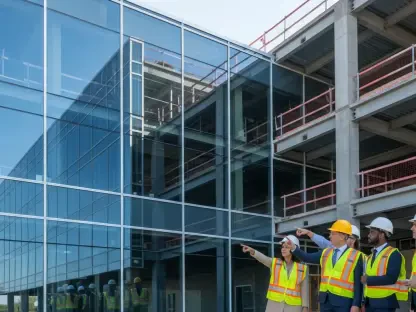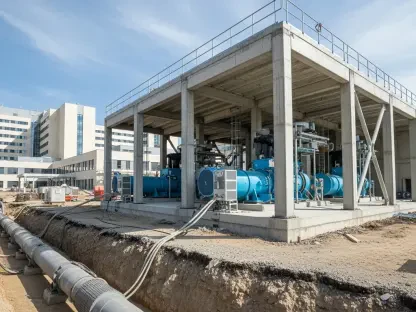I’m thrilled to sit down with Luca Calarailli, a renowned expert in construction, design, and architecture, who also brings a deep passion for leveraging technology to transform the real estate industry. With his extensive experience, Luca offers unique insights into how innovative tools and partnerships, like the recent collaboration between NCBA and Zetu Innovations on the Nyumba Zetu platform, are reshaping property management. In our conversation, we explore the motivations behind such collaborations, the standout features of cutting-edge platforms, and the broader impact on the real estate landscape in Kenya and beyond, particularly through the lens of technology and design.
How do you see partnerships like the one between NCBA and Zetu Innovations shaping the future of real estate management?
Partnerships like this are game-changers for the industry. They bring together financial expertise and tech innovation to tackle real problems in property management. In Kenya, where the real estate market is booming, combining a bank’s resources with a tech-driven platform like Nyumba Zetu can streamline operations for everyone involved—developers, landlords, and even homeowners’ associations. From a construction and design perspective, these collaborations also push us to think about how spaces are managed post-build, ensuring sustainability and efficiency are prioritized.
What specific challenges in the Kenyan real estate market do you think a platform like Nyumba Zetu is best positioned to address?
The Kenyan market has long struggled with inefficiencies in property management—think fragmented communication, delayed maintenance, and inconsistent financial tracking. A platform like Nyumba Zetu can centralize these processes, making it easier to manage residential or commercial properties. As someone who’s worked on the design side, I’ve seen how poor management can undermine even the best architectural projects. Digital tools that automate tasks and improve transparency are critical to bridging those gaps.
Can you walk us through some of the key features you’d expect in a property management platform like Nyumba Zetu that would benefit various stakeholders?
Based on what’s needed in the industry, I’d expect a platform like Nyumba Zetu to offer tools for task automation, like rent collection or maintenance scheduling, which saves time for landlords and property managers. For developers, having data-driven insights into property performance can inform future projects. Homeowners’ associations might benefit from streamlined communication features to address community concerns. From a tech perspective, integrating user-friendly design with robust functionality is key to ensuring all these groups can adopt the platform seamlessly.
How do you think digital solutions like this fit into the broader ecosystem of real estate services, such as financing or construction loans?
Digital solutions are the glue that can connect various real estate services into a cohesive experience. For instance, pairing a property management platform with financial products like mortgages or construction loans creates a full-circle service model. As a construction expert, I’ve seen how access to capital is only part of the equation—managing the asset after development is just as important. When a bank integrates these tools, it empowers clients to not only build but also sustain their investments over time.
What are some of the long-standing pain points in property management that you’ve observed, and how can technology help overcome them?
One major pain point is the lack of transparency—whether it’s unclear financial records or miscommunication about maintenance needs. I’ve worked on projects where post-construction management fell apart due to these issues, diminishing the value of the design. Technology, especially platforms that digitize records and automate workflows, can solve this by creating accountability and real-time updates. It’s about reducing human error and making sure everyone is on the same page, which ultimately protects the integrity of the property.
From a tech and design perspective, how do you envision a digital future for property management transforming the industry?
A digital future means moving away from manual, time-consuming processes to intuitive, automated systems. Imagine a platform where AI predicts maintenance needs based on usage patterns or where virtual reality lets property managers inspect issues remotely. As someone passionate about design, I see this as a way to preserve the aesthetic and functional intent of a building long after construction ends. The impact could be massive—reducing costs, improving tenant satisfaction, and even influencing how we design spaces to be more tech-compatible from the start.
Who do you think stands to gain the most from adopting these kinds of digital property management tools, and why?
I believe small to medium-sized landlords and property managers will benefit the most. Large developers often have resources for custom solutions, but smaller players struggle with limited budgets and time. A platform like Nyumba Zetu, if accessible and scalable, can level the playing field by giving them professional-grade tools without the hefty price tag. From a construction angle, this also means smaller projects can maintain high standards of management, which benefits the entire industry’s reputation.
What is your forecast for the role of technology in the real estate and construction sectors over the next decade?
I’m incredibly optimistic about the next ten years. Technology will likely become the backbone of real estate and construction, from smart building designs that integrate IoT for energy efficiency to platforms that manage entire portfolios with a click. We’ll see more data-driven decision-making, which will optimize everything from site selection to tenant retention. My hope is that these advancements also prioritize sustainability, ensuring that as we build and manage properties, we’re doing so with an eye toward environmental impact and long-term viability.









